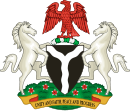| This article is part of a series in |
| Culture of Nigeria |
|---|
 |
Edo literature includes both written and oral works in the Edo language by the Edo people of Nigeria. It has its origins in precolonial times and has evolved over time. The literature is a reflection of Edo culture and it includes various periods, genres, and authors. It is rooted in traditional expressions such as brass-casting, wood carving, and pictorial writing. The written form became more prominent during the colonial era with the adoption of the Roman script. Folk songs are a part of Edo literature and are a part of Edo cultural heritage. These songs serve as repositories of historical narratives, moral teachings, and cultural expressions.
The early period of Edo literature saw a shift towards written expression. During this time, Bible passages were translated into the Edo language by J.E. Edegbe, and published by the Foreign Bible Society, London, in 1925, 1927, and 1930. These translations introduced Christianity and were among the first published works in Edo. The later period of Edo literature saw the emergence of various authors and literary forms. Authors like Jacob Egharevba and D.U. Emokpae produced works that explored Edo's history and ventured into fiction. Efforts to establish a standardised orthography began in the 1920s and played a role in the development of the Edo written language. Some individuals collected and translated proverbs, riddles, and folktales into English, drawing from their indigenous culture.
© MMXXIII Rich X Search. We shall prevail. All rights reserved. Rich X Search
